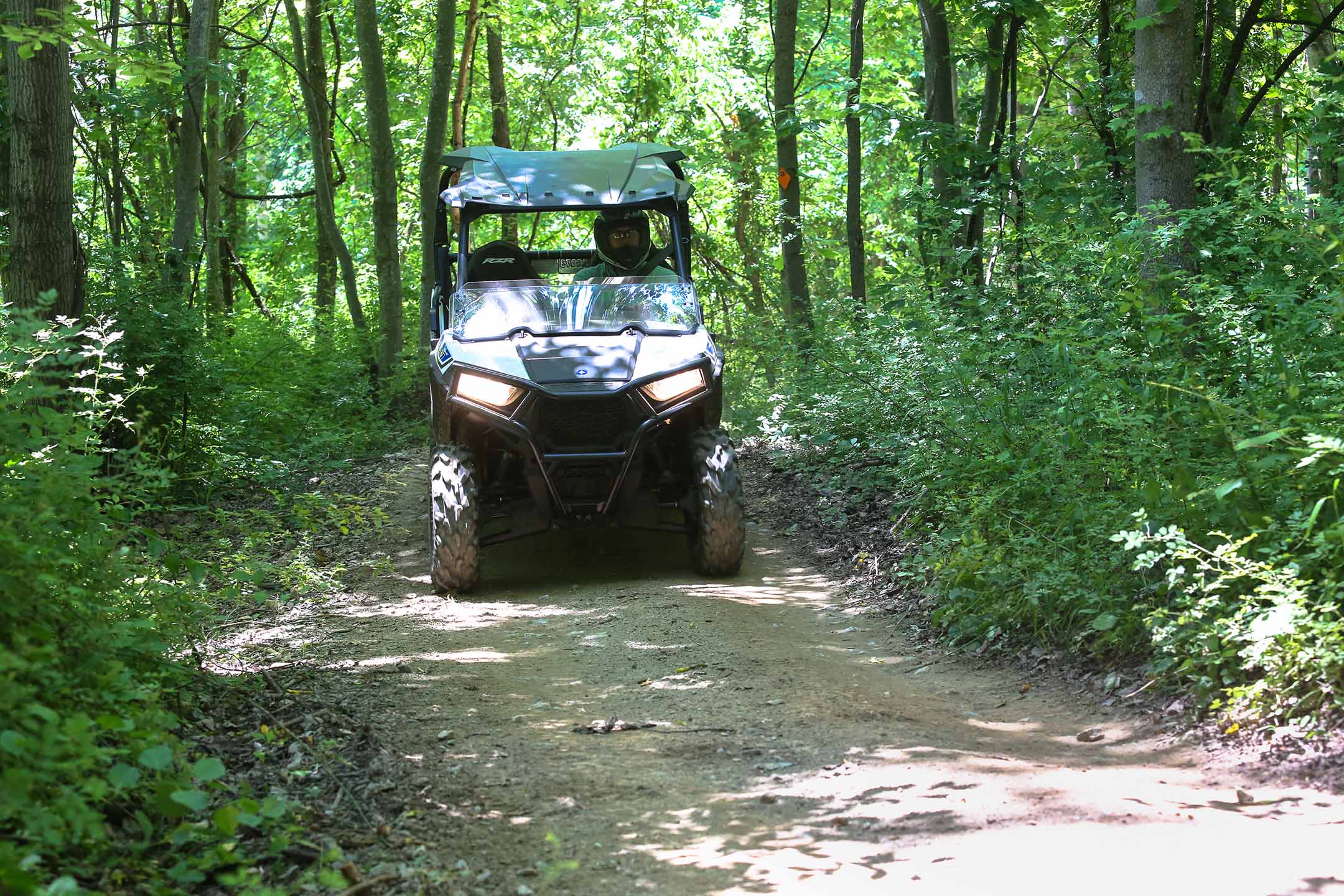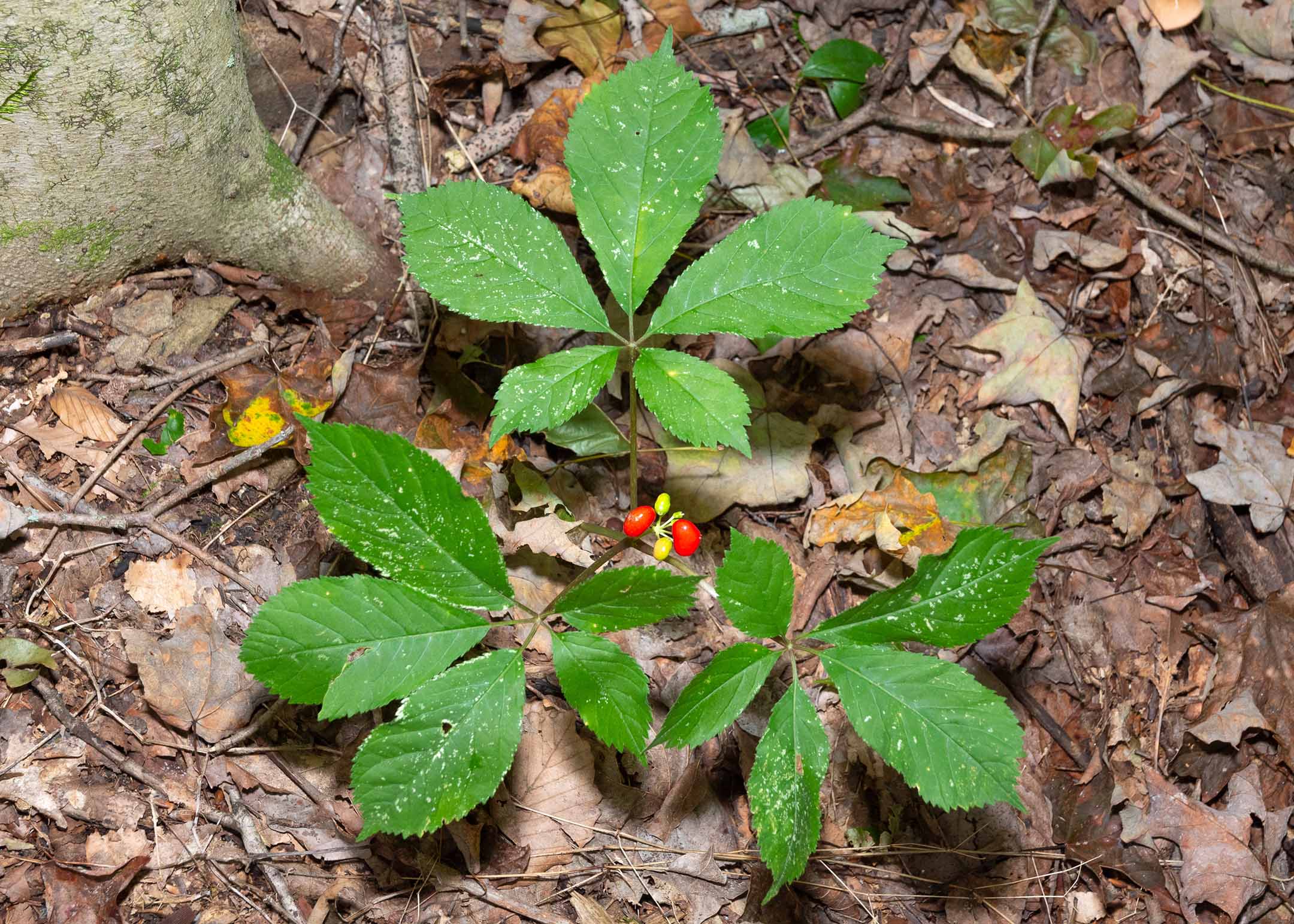Passes & Permits
Certain activities in the national forest require a pass or permit. You will need a pass or permit if you are:
- Riding an off-highway vehicle on motorized trails.
- Gathering firewood in permitted areas.
- Collecting certain forest products.
- Collecting American ginseng.
- Hosting an event in the national forest.
- Using national forest system land for commercial and business purposes.
- Requiring the use or occupancy of National Forest System land for access or service purposes.
- Guiding or outfitting visitors.
The sections below detail the permits needed for these activities and how to acquire one. If you have a question, contact us.
Off-Highway Vehicle Trail Passes
Trail passes are required for visitors to ride an off-highway vehicle on motorized trails. All drivers and passengers aged 16 and older are required to have this trail pass. Passes must be displayed while the vehicle is in operation on the trails. See our Rules and Regulations for OHV Riding page for more information.
Hiking, mountain biking, and horseback riding do not require a trail pass.

The national forest has nearly 150 miles of motorized trails open to off-highway vehicles that are no more than 50 inches wide.
Types of Passes Available
Two types of passes are offered:
Seasonal Pass: $35.00
The seasonal pass is good for riding throughout the entire trail season. The trail season generally runs from April through December.
3-day Pass: $20.00
The 3-day pass is good for a three-day ride. A three-day period is defined as from midnight (12:01 a.m.) of the first day punched to midnight of the third day (11:59 p.m.).
How to Get a Pass
Passes can be obtained in one of three ways:
- Purchase a pass from your local ranger station.
- Purchase a pass online through Pay.gov
- Purchase a pass from an authorized local vendor.
Passes ordered online can take up to ten business days for processing and delivery to your address.
Using Trail Passes
Trail passes are a decal that must be display on either a visitor’s vehicle, helmet, or clothing while they are riding the motorized trails. Passes are assigned to a single person, and are not transferable. Passes are non-refundable.
Firewood Permits
Firewood for use at home may be collected in specific areas and with a firewood permit. Contact one of our offices for information on purchasing a Forest Product Removal Permit (firewood permit) for these areas. The permit is $20 and is for dead and down firewood only. A copy of a map of the areas where you will be collecting the wood will be issued with the permit. The permit MUST be purchased in person at one of our three offices.
Firewood Permit Provisions
Firewood Permit (FS 2400-1) information:
- Each permit costs $20.00, and will authorize the permittee to collect up to 4 CCF (hundred cubic feet of wood), which is approximately 5 standard cords.
- Only people 18 years and older are eligible to acquire a firewood permit.
- Each PERSON is limited to ONE firewood permit per year.
- Firewood may NOT be removed in pieces more than 3 feet in length.
- Firewood collected from within the Spongy Moth Quarantine Area may not be removed from the quarantine area.
The following maps show which areas in the national forest are part of the firewood permit collection zones:
Firewood Collection when Camping
Permits are NOT required for visitors who are currently camping in the national forest to collect small amounts of firewood for a campfire. The wood collected must already be dead and down. No standing trees of any size, dead or alive, may be cut. No wood may be taken home or to privately-owned land.
Forest Products Permits
Plants are protected in the national forest. There are certain species of plants that can be collected under certain conditions with a permit. Plant collectors are required to state which species they will gather. The six allowed species are:
- Blue Cohosh (Caulophyllum thalictroides)
- Black Cohosh (Actaea [Cimicifuga] racemose)
- Snakeroot (Aristolochia serpentaria)
- Yellowroot/Goldenseal (Hydrastis canadensis)
- Bloodroot (Sanguinaria canadensis)
- Wild Ginger (Asarum canadense)
Permits for these six species are folded together into a $20 permit fee that is valid for the unit of the national forest where you bought the permit. Each person is eligible for only one permit. It is the same price regardless of the number of species that are collected. The permit includes a map showing areas open to plant collecting. It is the permittees' responsibility to ensure they are in the correct location.
Plant collecting permits are valid for one year. A prospective permittee is required to show identification, such as a driver’s license, when applying for a permit. Each permittee must also provide their phone number, vehicle make, and model.
You do not need a permit to collect small amounts of forest products such as fruits (blackberries, pawpaws, etc.), pinecones, mushrooms, or rose hips for personal use.
Ginseng Permits

A mature American ginseng plant in the national forest.
American ginseng (Panax quinquefolius) can be harvested from the national forest with a permit and under specific conditions. Permits are $20 and are sold at our offices through the harvest season, which starts on September 1 and ends on December 31. Ginseng permits are sold separately for each unit of the Wayne National Forest (Athens, Ironton, and Marietta). A permit purchased for ginseng harvest in one unit cannot be used to harvest ginseng in another unit.
Ohio has set specific laws controlling the harvest of ginseng, which permittees must follow in addition to rules specific to the national forest. Ohio law requires that with ginseng only mature roots (i.e., those with three leaf stems) be harvested. It also stipulates that harvesters replant the berries dug up with the root.
Special Use Permits
Special use permits are for events or situations not covered by those detailed previously. A special use permit, if authorized, is for a specific use of National Forest System land for a specific period of time.
Event Permits
A special use permit is required for any event that involves 75 or more attendees (whether participants or spectators). A special use permit is also required for any event in which a fee is charged for attendees or an income is derived from the event. There is a specific process for acquiring a special use permit, which begins by contacting one of our offices to request an application.
Commercial Permits
A special use permit is required if you are using the national forest for business purposes, providing a service in the national forest which charges people a fee, or deriving income from the use of the national forest. There is a specific process for acquiring a special use permit, which begins by contacting one of our offices to request an application.
Other Special Use Permits
Special use permits are also required for other types of circumstances, such as easements for private roads across National Forest System land, utility lines, or pipelines. There is a specific process for acquiring a special use permit, which begins by contacting one of our offices to request an application.
Guiding & Outfitting Permits
A special use permit is required for any individual or organization providing commercial guiding or outfitting services in the national forest, including nonprofits, educational and institutional groups. This includes activities that have a participation fee or when there is the sale of a service, whether or not the primary aim is to produce a profit. There is a specific process for acquiring a special use permit, which begins by contacting one of our offices to request an application.

